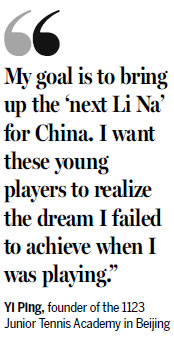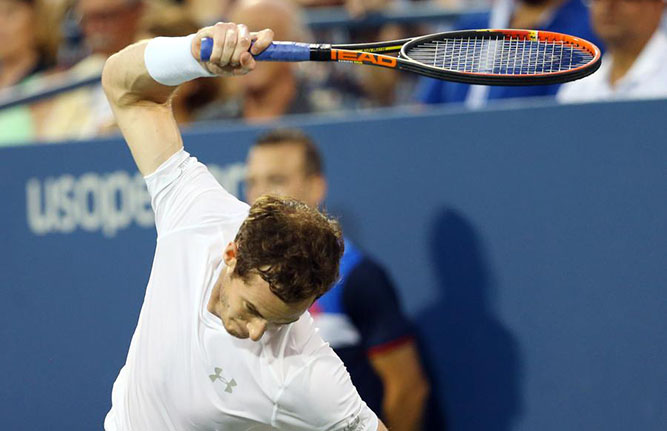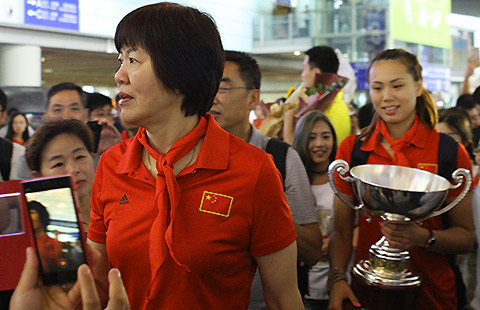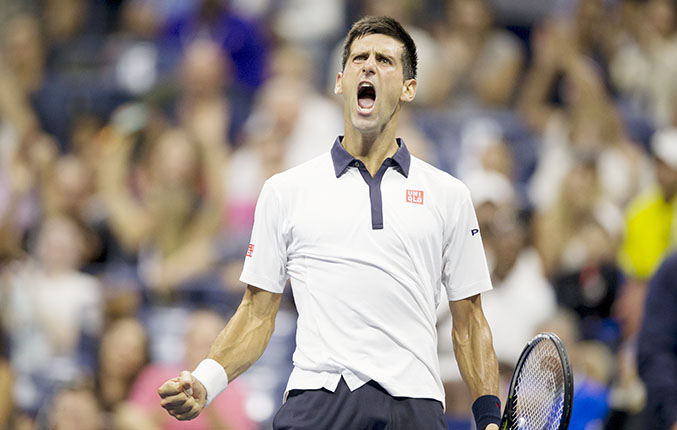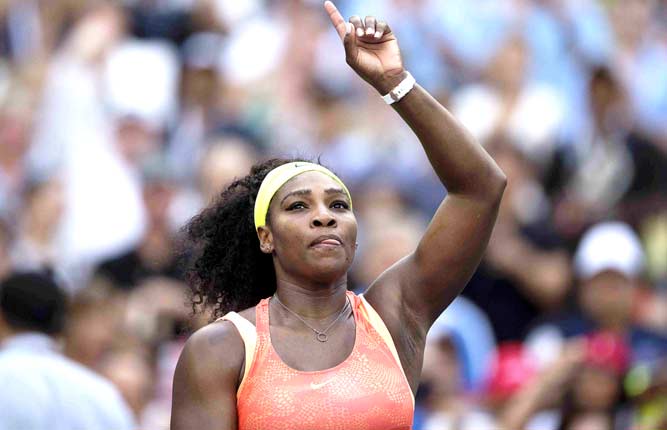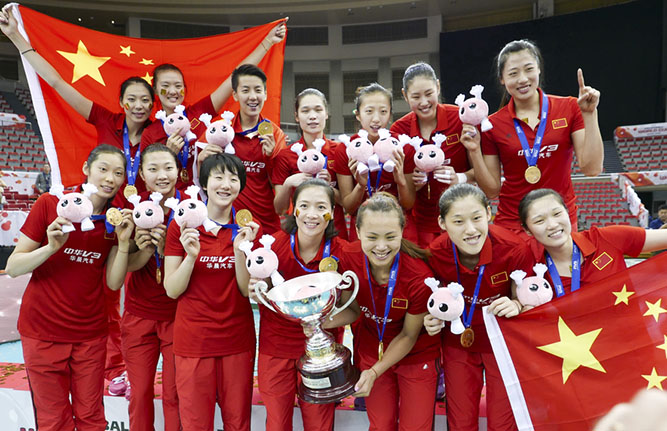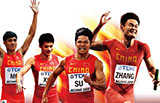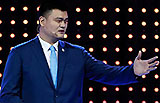Tennis school aims to produce Li Na's successor
By Lei Lei (China Daily) Updated: 2015-07-20 07:54
 |
|
Francisco Mastelli from Argentina gives instructions to young players at a training session in Beijing. Zou Hong / China Daily |
'Flyaway' flexibility
Starting with Li's generation, China's top tennis players enjoyed a "flyaway" from the traditional State system for cultivating sports stars, and employed their own support teams. Now, younger players are becoming independent at an earlier age.
Xu Shilin, China's top girl and currently No 1 in the International Tennis Federation's world junior rankings, attends an academy in Florida. Unlike most young players in China, who train with local clubs or State-run sports schools, Xu is free to decide her own schedule, and enjoys more opportunities to play on the world stage.
Yi's academy operates a similar system, and the fact that the students don't have to pay makes 1123 unique in China.
"None of the other tennis academies or clubs in China are free, which means the players in them have to pay their own expenses, but 1123 covers all the expenses once a player signs with us, including training, education, room and board, and travel. It's a little like placing a bet, because we can't be sure about their futures right now," said Yi, who declined to discuss details of funding and expenditure.
Student players are carefully selected through a series of extensive training sessions or via recommendations from local teams, and although they train at the academy, they are allowed to play for local teams in national games.
Each player is allowed to compete in the 20-plus International Tennis Federation circuits around the world for a year, which gives them more opportunities to go head-to-head with their generation's top players.
"The concept of 1123 is in line with professional coaching, and the pattern is much closer to the needs of professional tennis," coach Zeng said. "I didn't have such opportunities when I was playing. I believe 1123 is the first academy of its kind in the country."
In honor of Yi's efforts, the Chinese Tennis Association has authorized the academy to set up an "experimental class for excellent reserve players", with the goal of training young players for the national reserve team. Now, the academy runs three teams - under-14, under-18 and the professionals.
"The method used at the academy is an attempt to produce professional tennis players, and through years of development, it's proved to be a successful one," said Chen Yalin, an official from the China Tennis Administrative Center, who oversees the training of the reserve team. "Most of the young players in the academy are at the top level in their age groups, and they are backbone of the Chinese national junior team."
Former champion Li also served up a volley of praise. "The 1123 academy is a new operating model for training junior players, which means a larger number of young tennis talents can enjoy the most-advanced training models, like in Western countries," she said. "Compared with my generation at the same age, they have more promise, and they are the future of Chinese tennis."
